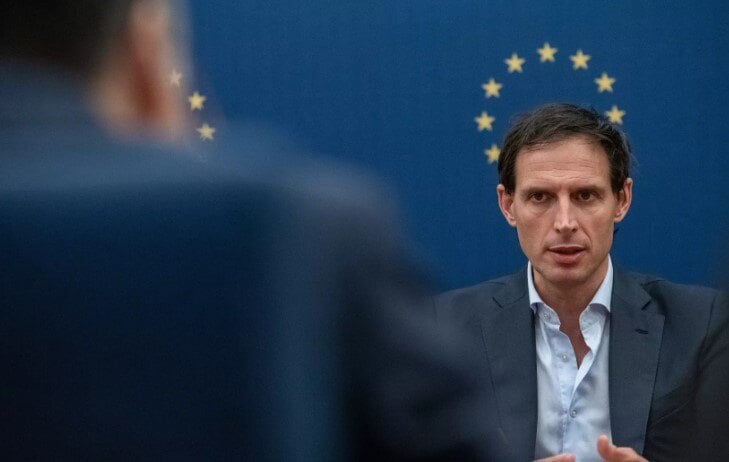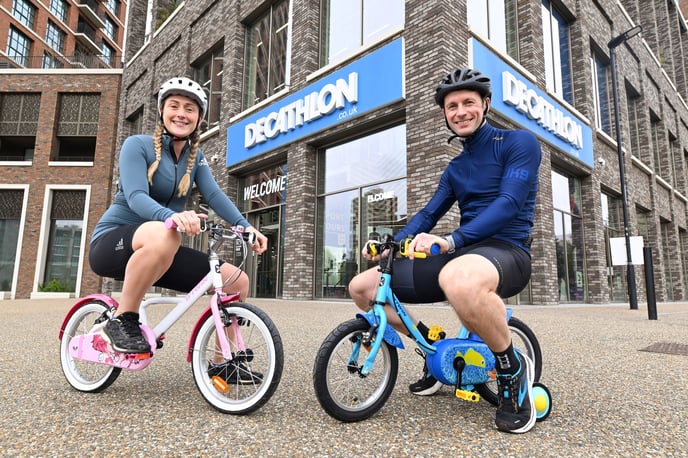
CSRD enforcement prioritised by EU Securities Regulator
What's going on in the world of ESG, CSRD, CSDDD, SDGs etc...
1. CSRD ENFORCEMENT PRIORITISED BY EU SECURITIES REGULATOR
Latest reports show the EU is bucking a global trend for continuously rising emissions, but is still not on track to meet its own climate action targets.
The headline figure was an 8.3% drop in greenhouse gas emissions, a fall not seen since the anomaly of 2020, when Covid lockdowns and mild weather reduced carbon output by 9.8%.
While emissions in Europe are now 37% below the baseline year of 1990, the union is still a long way from its 2030 target of net reduction of at least 55%.
The EU’s climate commissioner says this means climate action is not incompatible with economic growth.
Hmm, we still have a long way to go.
Reference: https://www.euronews.com/my-europe/2024/10/31/europes-greenhouse-gas-output-down-over-8-in-a-year
2. THE MOST CRITICAL CLIMATE ELECTION, A PIVOTAL CHOICE
The window is closing to reduce the pollution that is driving extreme climate change. This week’s election could decide if the US is part of the solution or part of the problem.
Donald J. Trump, who called climate change “one of the greatest scams of all time,” plans to build on his first-term attacks on the environment when he pulled the US out of the Paris Agreement and rolled back 100+ environmental regulations.
Kamala Harris, has called climate change an “existential threat,” and is widely expected to continue federal support for wind, solar and other forms of clean energy. In 2022, she cast the tiebreaking vote on the Inflation Reduction Act, and has pledged to fully implement it.
We don’t have a vote, but because we care about climate, we will be less stressed if the Kamala wins.
Reference: https://www.nytimes.com/2024/10/28/climate/trump-harris-climate-change.html
3. HOW DO WE REACT WHEN FRIENDS GET EXCITED OVER BLACK FRIDAY?
This is not a news story, but an honest question. What do we say when someone tells us how excited they are about the deals they might find on Amazon on Black Friday?
The emissions cost of Black Friday (BF) is approximately a million tons of GHGs annually. Most BF shopping happens online, so deliveries have a much higher carbon footprint. In the UK, GHGs from deliveries from BF equals 435 return flights from London to New York.
The spike in consumerism also leads to substantial waste. More than half of the BF products bought are discarded after minimal use. There is 143% increase in product returns after BF. These frivolous purchases cause serious emissions and more waste.
How do we stop this madness?
Reference: https://blog.cleanhub.com/black-friday-environmental-impact?t
4. HBSC SUSTAINABILITY CHIEF DROPPED FROM EXEC COMMITTEE
HSBC dropped Celine Herweijer, group chief sustainability officer, from its new 12-person operating committee. The CEO says the bank “remains committed to supporting the transition to net zero”. Weasel words.
Andrew Harper, of Epworth Investment Management, said: "Commitment without action remains cheap talk at HSBC. Time and time again, we've seen the bank make bold climate claims and then water them down. Removing Celine from the operating committee is just the latest signal of the bank's true intentions - profits at any cost."
The decision-making executive board is where the CSO needs to be. This move reflects HSBC’s lack of urgency in dealing with the climate crisis.
Another bank to avoid.
5. AT LEAST 47,000 HEAT-RELATED DEATHS IN EUROPE IN 2023
You will probably have seen this reported elsewhere, but this is pretty important.
According to a new study in 'Nature Medicine’, heat-related deaths in Europe were over 47,000 in 2023. That is shocking.
Southern European countries are most affected. Greece is way worse than the rest.
Societies are getting better at adapting to extreme heat. Adaption prevented up to 80% of mortality. If 2023 temperatures had occurred in 2002-2004, the estimated morality would be more than 85,000.
"We need to take into account that inherent limits in human physiology and societal structure are likely to set a bound to the potential for further adaptation in future.”
Be careful out there.
Reference: https://www.nature.com/articles/s41591-024-03186-1
6. $163 MILLION PLEDGED AT COP16, BUT $700 BILLION IS NEEDED
COP16 ended on the first day of this month. As of now, many of the agreements that were proposed before the world’s largest biodiversity event are still out of reach.
Negotiators are trying to cut a deal on the $700 billion that scientists project is needed annually to halt biodiversity loss. Despite some funds trickling in, with seven countries pledging $163m to the Global Biodiversity Framework Fund, it is clearly not enough.
A report revealed that developed nations are paying less than 50% of their “fair share.”
“We are talking about millions pledged…But what we are expecting are billions.”
We have a long way to go. Without biodiversity we are nothing.
Reference: https://www.carbonbrief.org/cropped-30-october-2024-the-state-of-play-at-cop16
7. DANONE, UNILEVER AND PEPSICO PUSH FOR PLASTICS TREATY
Ahead of next month’s final negotiations on the world’s first treaty to tackle plastic pollution, the CEOs of 21 large businesses, including Unilever, Danone and PepsiCo are looking for ambitious pledges to tackle the root causes of the issue. These include:
Phase-outs of ‘chemicals of concern’, and plastics that are ‘problematic’ to recycle.
Extended Producer Responsibility principle – where those placing plastics on the market cover part of recycling costs.
Global, sector-specific recommendations on plastic product design.
A framework to make the Global Plastics Treaty targets more ambitious over time.
All of this is progress, but I’d like to see a ban on all single-use plastic products (like bottles) too. That is unlikely.
8. UN REPORT SAYS THE WORLD IS HEADING TO 3% WARMING
As climate impacts intensify, the Emissions Gap Report 2024: No more hot air … please! says stronger Nationally Determined Contributions are needed or the Paris 1.5°C goal will be gone within a few years.
A failure to increase ambition in these new NDCs and start delivering immediately would put the world on course for an increase of 2.6-3.1°C this century, bringing debilitating impacts to people, planet and economies.
1.5°C is still possible, with solar, wind and forests holding real promise. Strong NDCs need to be backed urgently by a whole-of-government approach.
Economic growth needs to be moderated. G20 nations, particularly the largest-emitting members, need to do the heavy lifting.
Reference: https://www.unep.org/resources/emissions-gap-report-2024?
9. IF NOT NOW, WHEN? MASSIVE FLOODS IN SPAIN KILL OVER 200
We know we don’t need to tell you that Valencia in Spain suffered more than 200 deaths during this past week from massive floods.
Powerful storms turbo-charged by a warming planet brought Spain’s deadliest floods in a generation. Cold air moved over the Mediterranean Sea – warmer because of climate change – allowing the hotter, moister air at the surface to rise quickly and produce robust rain clouds, 8 months’ rain in a day.
Valencia also hit 30.7°C on January 25, 2024 – the highest January ever recorded in Europe. These things come together. The extreme flooding is not a ‘one off’ but a stark reminder of the interconnected extreme consequences of anthropogenic global warming.
Can the need for coordinated legislation and action be any clearer? How many have to die?
Reference: https://www.france24.com/en/live-news/20241031-why-have-spain-floods-killed-so-many
10. EUROPEAN DELEGATION TO COP29 TO RECEIVE BURNER PHONES
Now, what does that tell you. The level of trust going in to this COP is probably lower than we have ever seen before.
The head of the Greens’ delegation to COP29 in Azerbaijan next month has criticised the host country over its human rights record and status as a major fossil fuel producer.
MEPs travelling to Baku will be issued with disposable phones amid fears of hacking by foreign agents, the Green MEP Michael Bloss has revealed. He is also concerned about slow progress towards ending fossil fuels.
“Security advisors have warned us that our devices are likely to be infiltrated,” Bloss said, “Even as MEPs, we can’t communicate freely without fearing state monitoring,”
How does COP deliver any agreement?


